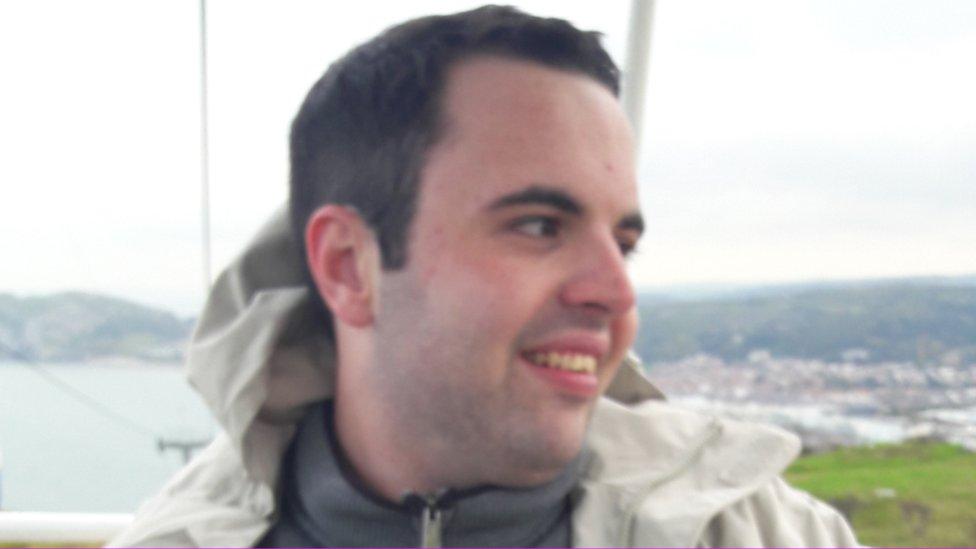'Traumatised' autistic man restrained for 11 hours
- Published

Adam Nasralla was handcuffed, placed in a spit hood and detained in a police cell
The mother of a man with autism who was restrained by as many as nine members of staff for 11 hours at a private hospital in Birmingham has said her son has been left "traumatised".
Jill Nasralla told the BBC's Victoria Derbyshire she had not received an apology after the incident involving her son Adam, then 20, at Wast Hills.
He has now been given an out-of-court settlement by the hospital and police.
The hospital said patient welfare was its "number one priority".
'Absolutely terrified'
Ms Nasralla said her son's behaviour had "deteriorated" since he was moved to the hospital at the age of 19, and that the hospital had removed her son's autism diagnosis without her knowledge.
In March 2014, after being restrained at the hospital Mr Nasralla was handcuffed, placed in a spit hood and detained in a police cell where restraints continued to be used, with no solicitor or appropriate adult allowed to visit him.
His mother explained: "One weekend he went into absolute crisis. I got a call saying they could no longer manage him.
"That morning they had rang the police and wanted Adam to be arrested for assaulting staff.
"By the evening they'd called the police again and told them he was culpable and had the capacity to make decisions, and they arrested him this time.
"He was handcuffed, placed in the cage in the police van. He went alone and had the restraint belt and spit hood. Adam must have been absolutely terrified."
Ms Nasralla said the hospital "hasn't even said sorry", and that her son - now 23 - had been left with PTSD [post-traumatic stress disorder].
Wast Hills hospital said: "The health and welfare of both the people we support and our staff is always our number one priority.
"We co-operated in an open and transparent way with the serious case review and all its recommendations have been acted on."
Assistant Chief Constable Martin Evans from West Mercia Police said: "Every day our officers and staff have to make quick time decisions in difficult and challenging circumstances in order to protect our communities from harm."